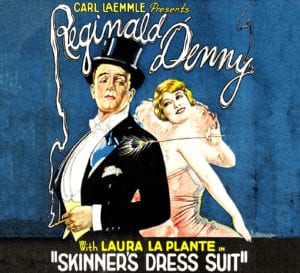SKINNER’S DRESS SUIT (1926) Directed by William A. Seiter USA 70 mins PG This show is intended to revive the reputation of a comedian of the silent era – not on the scale of a Lloyd or a Keaton, but extremely amusing and entertaining in his own right. I have several of his Universal comedies … Read more
